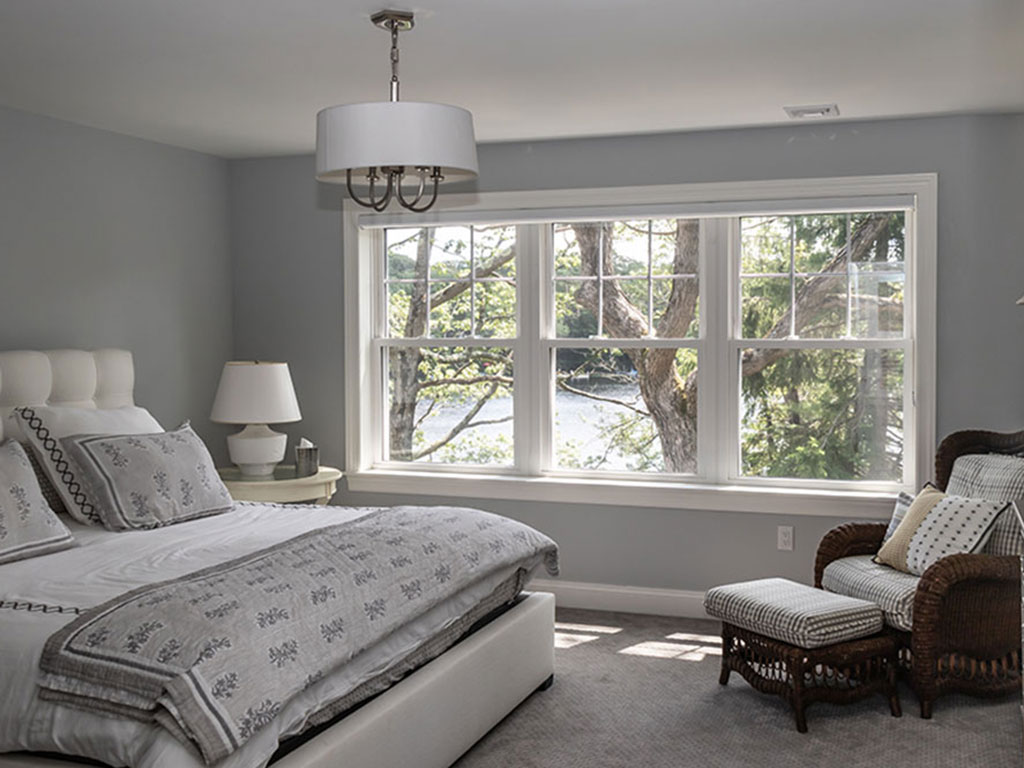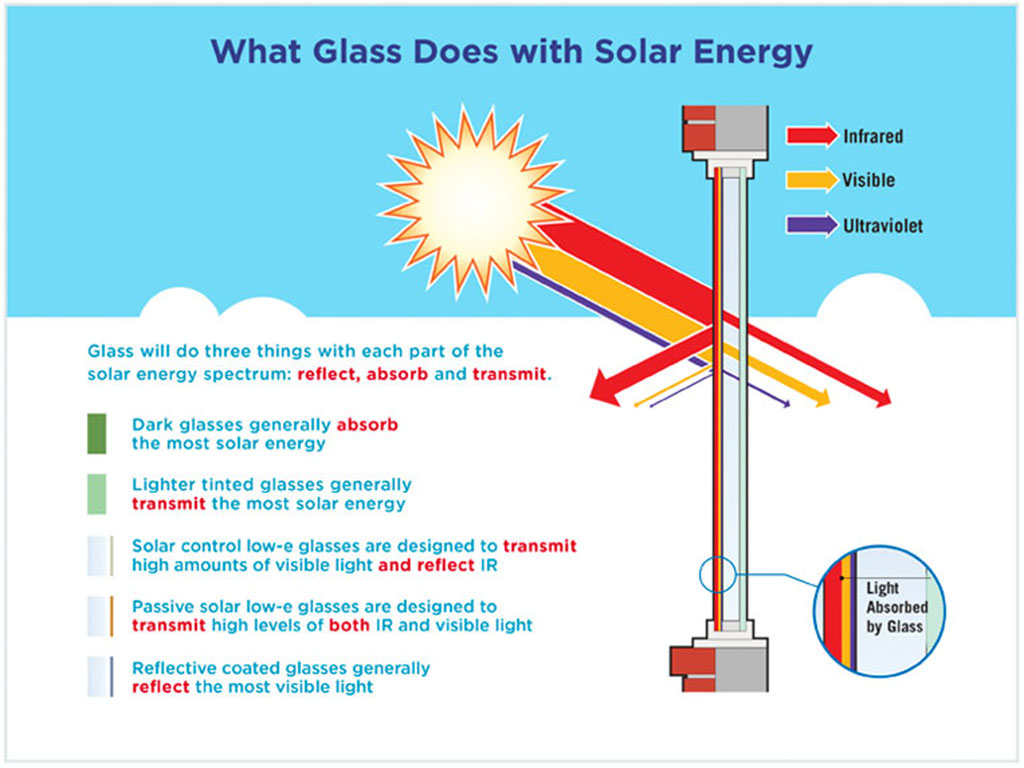Window performance is one of the most overlooked things in the average residence; generally, most people think windows all tend to have the same performance. However, as in the case of low-e glass (low emissivity glass), certain window types can deliver noticeable performance – especially as pertains to temperature control and energy-efficiency.

For example, as pertains to the energy-efficiency of low-e glass windows, regular windows allow up to 90% of the home’s heat loss. If you have more efficient windows, you could reduce your thermostat bill during the winter by keeping heat inside and improving summer air conditioning costs by keeping more heat outside.
In the following article, we will cover some of the benefits conferred by being able to keep infrared and ultraviolet rays out of your home. There are a couple of types of glass that can accomplish either; both are based on the property of low emissivity.
How Does Low Emissivity Work?
Generally, low-e glass includes a very thin film that significantly reduces the amount of ultraviolet rays and infrared rays that enter into your home from the outside environment, without reducing the amount of actual visible light.
Specifically, low emissivity refers to the ability of a piece of glass to radiate heat – which is an essential property of climate-controlling glass. It comes in the form of a very thin coating that is applied to it that redirects infrared and UV rays from the home, back out to the outside atmosphere.
Types of E-Glass
There are primarily two different types of e-glass: solar control low emissivity glass and passive low emissivity glass. The solar variety options are tailor-made to restrict infrared energy – which is responsible for otherwise over-heating your home during the summer. Solar control low-e glass also works at the higher end of the energy spectrum to reduce the amount of harmful ultraviolet rays from entering the home.
As you can see, solar control coating on your window glass will reduce how hard your air conditioner has to work to cool down the home during the summer. This, of course, translates directly to a reduced energy bill. The vinyl windows installed by Spicer Bros. Construction, for example, reflects infrared radiation and robs ultraviolet rays of much of their strength, while allowing visible rays through (almost unabated).
The second type of e-glass used functions in a primarily passive capacity. This means that it improves the entrance of infrared energy into your home from the outside environment. At the same time, it reduces the amount of UV energy. E-glass is best used in colder climates, where it will dramatically limit heat loss to the outside environment. Remember: e-glass performs these energy wonders without restricting the amount of visible light that enters your home – making them superior to tints and other alterations that dampen the visible range.

Benefits to the Homeowner
The above gives you a hint at some of the benefits that low-e glass confers to your house. The most critical and consistent way is an improvement in energy efficiency – your home’s HVAC system simply has to work a lot less to maintain the desired in-air atmosphere. This, of course, translates to energy savings for you. Low e-glass can then be thought of as a form of passive climate control; in the hot southern parts of the US, the glass reflects infrared energy away from your property. In the colder northern regions, the glass passively enhances heating. Of course, infrared energy is responsible for the adverse effects in both cases, and e-glass has a layer that reflects away this part of the electromagnetic spectrum.
The other, higher frequency range of energy – after the visible part – is ultraviolet energy. Low e-glass blocks much of this, which has the added effect of lengthening the operational lifetime of colored fabrics and other surfaces inside the home. UV rays are generally responsible for prematurely aging fabrics, as the light is of such high energy that it actually damages them.
To learn more about the specifics of the available low-e glass, and how it can fully benefit you as a homeowner or business owner, don’t hesitate to drop us a line at Spicer Bros. We manufacture and install vinyl windows for all manner of clients.






